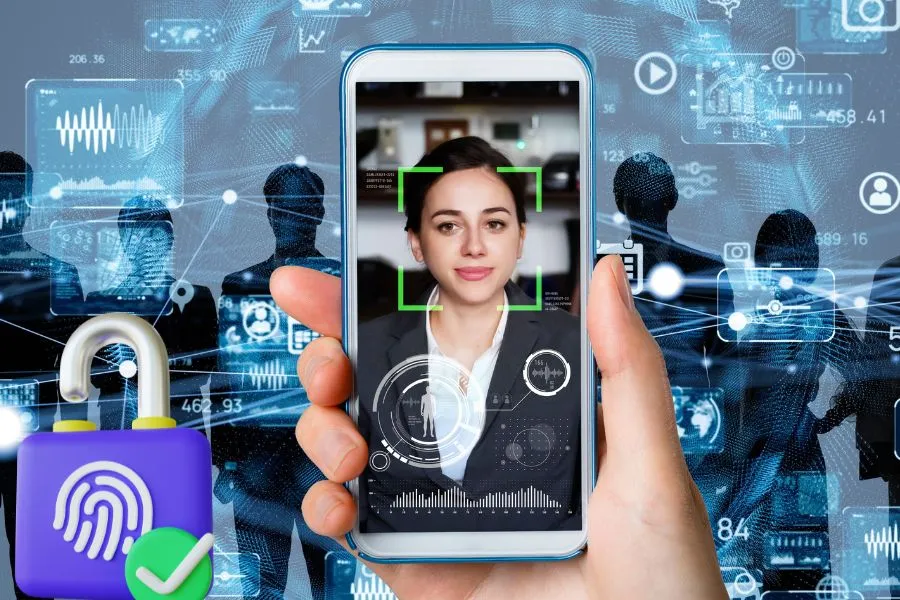Exploring the Implications of Biometric Authentication for Securing Sensitive Information
In today's digital age, protecting sensitive information has become increasingly challenging. Traditional methods of authentication, such as passwords and PINs, are proving inadequate against sophisticated cyber threats. As a result, biometric authentication is emerging as a powerful and reliable option for securing sensitive information. Using unique physical or behavioural characteristics, biometric authentication offers several advantages over traditional methods, although it also presents its own challenges and implications.

The Advantages of Biometric Authentication
Enhanced Security
Biometric authentication significantly increases security by relying on unique biological characteristics that are difficult to duplicate or steal. Fingerprint recognition, facial recognition, iris scans, and voice recognition are some commonly used biometric methods. Unlike passwords, which can be guessed or stolen, biometric data is inherently tied to the individual, making it a more secure form of authentication. This ensures that only authorised users can access sensitive information.
Convenience and Efficiency
Biometric authentication provides a convenient and effective way for users to access systems and services. Users don't have to remember complex passwords or carry physical tokens; instead, they can quickly and effortlessly authenticate using their biometric features. This benefit translates into a smoother user experience and can lead to higher user adoption rates for secure systems.
Reduced Risk of Fraud
The use of biometrics can significantly reduce the risk of fraud. Biometric features are difficult to duplicate or replicate, making it challenging for unauthorised individuals to gain access to sensitive information. For example, in financial services, biometric authentication can help prevent identity theft and unauthorised transactions, increasing overall security.
Challenges and Concerns
Privacy Issues
One of the primary concerns associated with biometric authentication is privacy. Biometric data is highly sensitive and personal. If this data is compromised, it can have serious implications for an individual's privacy. Unlike passwords, which can be changed if compromised, biometric traits are immutable. Therefore, safeguarding biometric data is paramount to prevent misuse and potential identity theft.
Data Security
The storage and transmission of biometric data must be handled with the utmost care. Biometric data, if not properly secured, can be vulnerable to hacking and cyber-attacks. It is crucial for organisations to implement robust encryption methods and secure storage solutions to protect biometric information from unauthorised access.
False Positives and False Negatives
Biometric systems are not infallible and can sometimes produce false positives or false negatives. A false positive occurs when an unauthorised person is incorrectly granted access, while a false negative occurs when an authorised user is denied access. These errors can be problematic, especially in high-security environments. Continuous advancements in biometric technology are aimed at minimising these errors, but they remain a concern.
Ethical and Legal Implications
The widespread use of biometric authentication raises ethical and legal questions. The collection and use of biometric data must comply with relevant privacy laws and regulations. Organisations must be transparent about how they collect, store, and use biometric data, ensuring that users are informed and provide consent. Additionally, there are concerns about surveillance and the potential misuse of biometric data by authorities or private entities.
Real-World Applications
Despite the challenges, biometric authentication is being widely adopted in various fields due to its advantages. In the financial sector, banks and financial institutions use biometrics to provide secure customer authentication, reduce fraud, and enhance user experience. Healthcare providers use biometric authentication to secure patient records and ensure that only authorised personnel have access to sensitive medical information. In the travel and hospitality industry, biometric systems improve customer service by streamlining security checks and enabling faster and more secure identity verification.
Active Events
Transition from Non-Data Science to Data Science Roles
Date: Aug 07, 2025 | 7:00 PM (IST)
7:00 PM (IST) - 8:10 PM (IST)
2753 people have registered
Unlocking Lucrative Earnings: Mastering Software Engineering Salaries
Date: Aug 05, 2025 | 7:00 PM(IST)
7:00 PM(IST) - 8:10 PM(IST)
2811 people have registered
Bootcamps
Data Science Bootcamp
- Duration:4 Months
- Start Date:Aug 09, 2025
Full Stack Software Development Bootcamp
- Duration:4 Months
- Start Date:Aug 09, 2025
